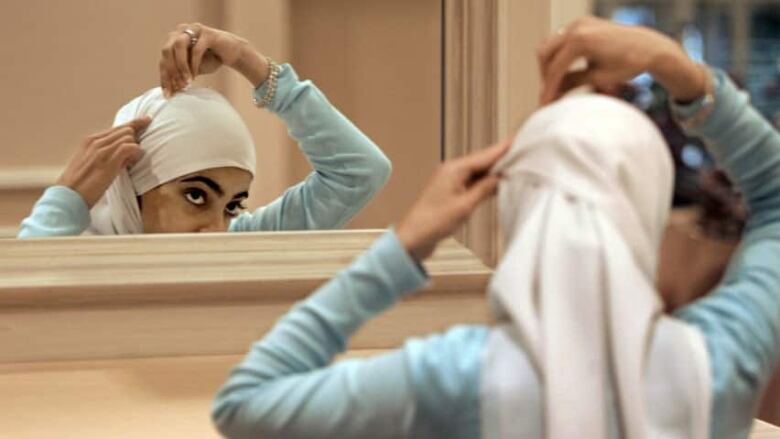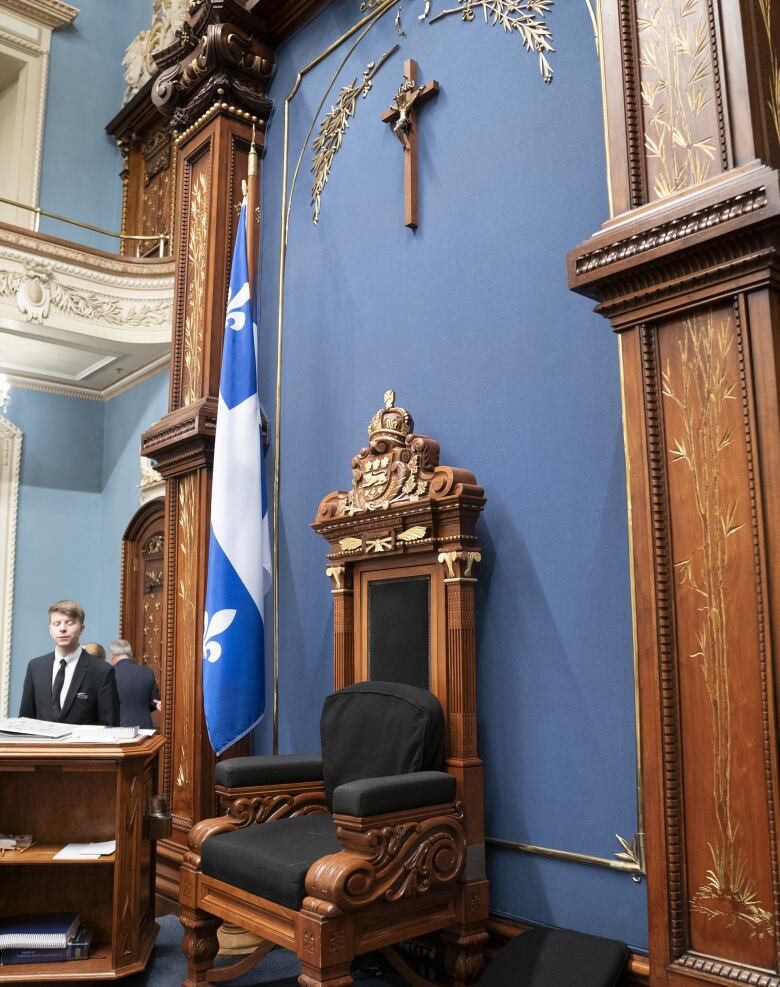What's in Quebec's secularism bill: Religious symbols, uncovered faces and a charter workaround
We've highlighted key points in the bill tabled by the CAQ government

The Quebec government has tabled its long-awaited secularism bill, laying down proposed ground rules it says will ensure the religious neutrality of the state.
Bill 21,entitled "An Act respecting the laicity of the State," is 16 pages long. Here are some key points and passages:
The preamble tothe bill explains the Coalition AvenirQubec government's motivation. The Quebec nation, it says, "has its own characteristics, one of which is its civil law tradition, distinct social values and a specific history that [has]led it to develop a particular attachment to state laicity."
It says secularity should be "affirmed in a manner that ensures a balance between the collective rights of the Quebec nation and human rights and freedoms."
The preamble also notes that Quebec "attaches importance to the equality of women and men" an apparent reference to the concern expressed by some people that the hijab, theheadscarf worn by some Muslim women, and the niqab, a Muslim veil,are symbols of female inferiority.
The word "laicity" a translation of lacit, a term rooted inthe French Revolutionis used 18 times in the billwhile "secularism," the frequent English translation, isn't used once.
Laicity, according to the bill, is based on four principles: the separation of state and religions, the religious neutrality of the state, the equality of all citizens and freedom of conscience and freedom of religion.

Banning religious symbols
The most contentious section of the bill, if made law,would ban public workers in positions of authority from wearing religious symbols.
Immigration Minister Simon Jolin-Barrette said all religious symbols regardless of the size of the object would be prohibited. A religious tattoo or a hairdo, such as Rastafarian dreadlocks,arenot considered a religious symbol, he said.
The bill includes a full list of those who would be affected. They include:
- Any public employee who carries a weapon, including: police officers, courthouse constables, bodyguards, prison guards and wildlife officers.
- Crown prosecutors, government lawyers and judges.
- School principals, vice-principals and teachers.
A grandfather clause would exempt some public workers as long as they hold the same job. In the case of teachers, the exemption would only apply for as long as an individual teacherexercised the same function while working forthe same school board.
Receiving services
The bill also details rules that would requirecitizens to uncover their faces to receive a public service for identification or security purposes.
The previous Liberal government passed a law with similar requirements, but the relevant sections remainsuspended following a court challenge by civil liberties groups.
Under the CAQ's proposal, the bill would apply when receiving government services, including:
- Municipal services,for instance, public transit. A woman who gets on a bus wearing a Muslim niqab would need to uncover her face in order to confirm her identity in order to use a discounted transit card, Jolin-Barrette said.
- Doctors, dentists and midwives in public institutions.
- Subsidized daycares.
- School boards.
The crucifix
There's no mention of the crucifix that hangs above the Speaker's chair in the National Assembly, but the CAQ government has promised to move it to an unspecified location in the legislative building if the bill becomes law. A motion was unanimouslyadopted by members of the National Assemblyon Thursday.
The crucifix, which was installed where it now hangsin 1936, has been a sticking point as successive governments have tried to pass a secularism law.The landmark Bouchard-Taylorreport into the accommodation of religious minorities recommended in 2008 that it be removed, but no government has done so.

Notwithstanding clause
The billinvokes the notwithstanding clause to override any violations of the Charter of Rights and Freedoms.The clause allows provincial or federal authorities to override certain sections of the charter for a period of five years.
It mentions, in particular, sections twoand sevento 15 of the charter, which pertainto legal rights. Section twoprotects the "fundamental freedoms" of individuals, including freedom of conscience and religion.
Quebec's charter, reworked
If passed, the law would also rewrite sections of Quebec's Charter of Human Rights and Freedoms to include a reference to the factthat the Quebec nation considers "state laicity to be of fundamental importance."
In particular, the following line would be amended to include "state laicity" after democratic values in this sentence: "In exercising his fundamental freedoms and rights, a person shall maintain a proper regard for democratic values, public order and the general well-being of the citizens of Quebec."
Read Bill 21 in its entirety:
(PDF KB)
(Text KB)CBC is not responsible for 3rd party content












_(720p).jpg)


 OFFICIAL HD MUSIC VIDEO.jpg)
.jpg)



























































































